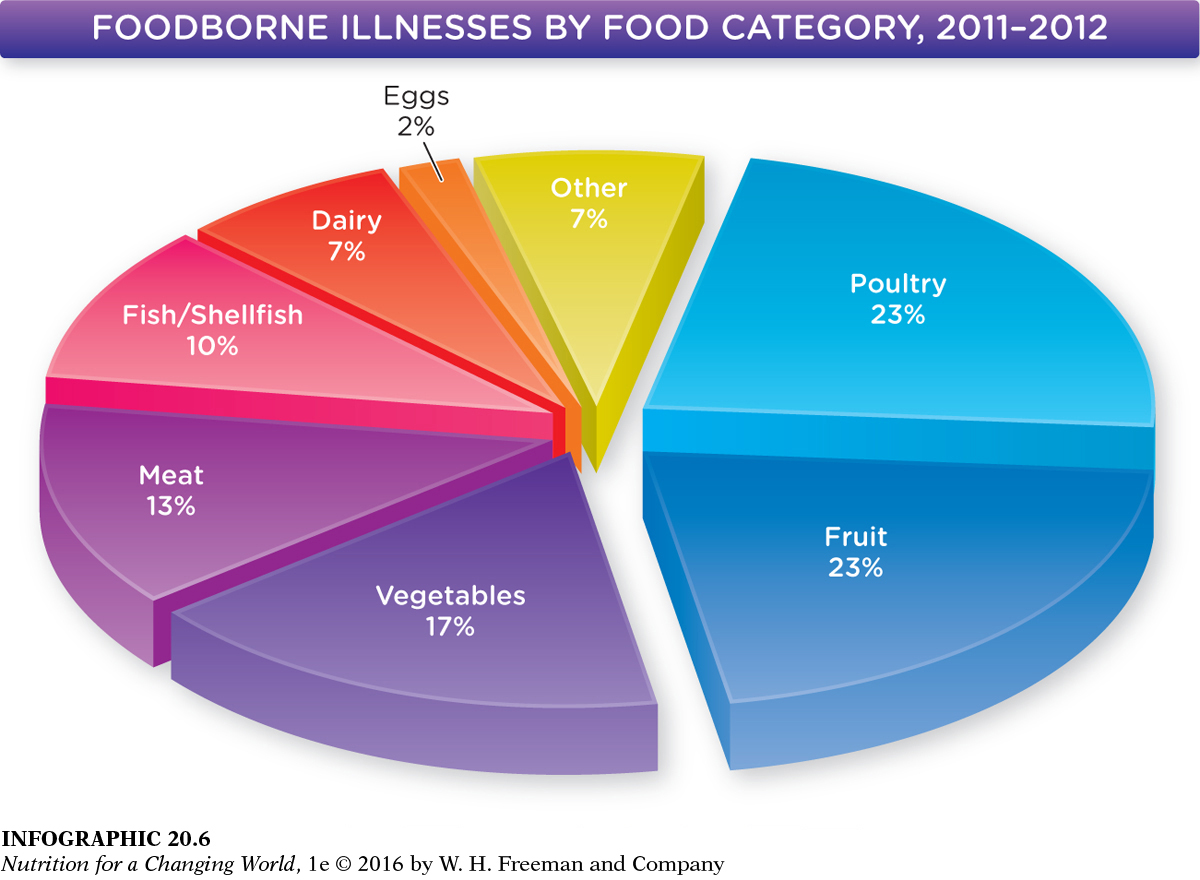FOOD SAFETY AND MODERNIZATION ACT
FOOD SAFETY MODERNIZATION ACT (FSMA) signed into law in 2011, the FSMA aims to ensure that the U.S. food supply is safe from contamination by giving federal regulators more proactive authority in how food is grown, harvested, and processed
The outcome of this crisis was the Food Safety Modernization Act (FSMA), designed to apply mandatory preventive controls, or HACCP, throughout the food supply. On-

Question 20.5
 What percent of reported foodborne illnesses are caused by contaminated produce?
What percent of reported foodborne illnesses are caused by contaminated produce?
Forty percent of reported foodborne illnesses are due to contaminated produce.
FOOD DEFENSE an effort to protect the food supply against intentional contamination due to sabotage, terrorism, counterfeiting, or other illegal, intentionally harmful means
FSMA was signed into law by President Obama in 2011. It has been hailed as the most sweeping change to food safety legislation in 70 years. FSMA gave the FDA more authority in the regulation of food production facilities and in recalling contaminated foods, and established new standards for safe produce. In addition, FSMA gave the FDA the power to ensure food defense. Food defense differs from food safety in that it protects against intentional, rather than unintentional, contamination of food.
Would FSMA have prevented the 2006 spinach outbreak had the laws been in place back then? Possibly, says Smith DeWaal. “FSMA would mean that there were more eyes on the process, more controls at the farm level…. you would have a process control plan, a food safety plan in every facility where that spinach would have been washed. That plan might require water testing, so if they had discovered the [contaminated] water earlier, the spinach may have gotten into the facility but may never have gotten released to the public.”
These safety mechanisms, while not perfect, she says, would have gone a long way toward avoiding the outbreak.